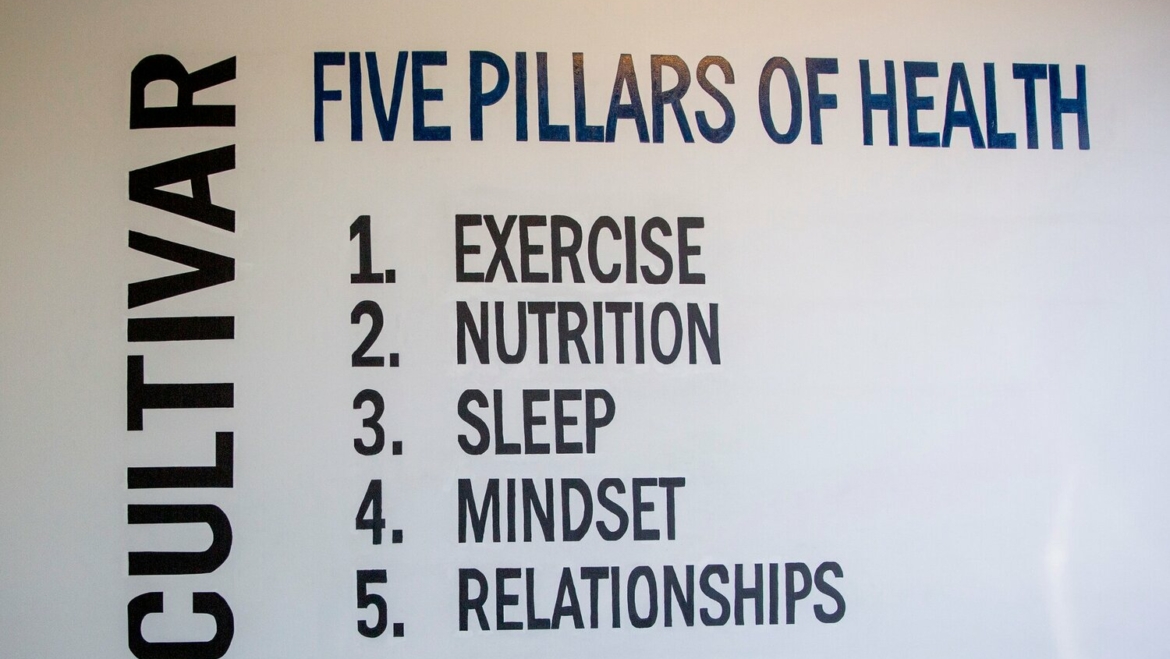Do you get at least 7 hours of good quality sleep every night?
If you have answered no, it means you are going through your day in a state of “sleep deprivation.”
In short, sleep deprivation means that the quality of your waking life is suffering and it could be suffering massively. Not only that, but you can shorten your life span and place your body at far greater risk of chronic diseases and other illnesses.
This means that no matter how well you eat, no matter how much you train, no matter the great work/life balance you have established, you are not capable of experiencing life at its highest quality.
At Cultivar Health, we focus on our five pillars of health with our members. Our first monthly seminar was on Friday night and was on our third pillar, “sleep”. We covered the following topics:
1. What makes us sleep?
2. Quality AND quantity;
3. Detriments of sleep deprivation;
4. Benefits of good sleep;
5. Solutions centred around trouble getting to sleep;
6. Solutions centred around staying asleep.
One of the studies which we used gave a scary insight into some of the negative physical affects experienced due to sleep deprivation.
“In a landmark study of human sleep deprivation, University of Chicago researchers followed a group of student volunteers who slept only four hours nightly for six consecutive days. The volunteers developed higher blood pressure and higher levels of the stress hormone cortisol, and they produced only half the usual number of antibodies to a flu vaccine. The sleep-deprived students also showed signs of insulin resistance — a condition that is the precursor of type 2 diabetes and metabolic slowdown. All the changes were reversed when the students made up the hours of sleep they had lost. The Chicago research helps to explain why chronic sleep debt raises the risk of obesity, heart disease, stroke, and diabetes.” – Harvard Health (https://www.health.harvard.edu/womens-health/repaying-your-sleep-debt)
There is a lot a lot of information out there on the many ways our physical, mental, and emotional health is suffering due to sleep deprivation. Instead, we want to educate you on some of the small things we can do that have a big impact when put together.
Struggle getting to sleep?
1. Create a “pre-sleep” routine. When you are two hours away from going to bed, start to get your mind ready for down time. Take a warm shower, play relaxing music, read a book, light some candles, and most importantly avoid emails or any work that puts you in any type of busy/stressed mindset! Follow this routine for at least 21 days before you decide it does not work;
2. Turn your phone to “night shift” mode to a warm setting in order for your phone to emit less blue light, which confuses your brain into thinking it is time to be awake (settings > display and brightness > night shift)
Struggle staying asleep?
1. Sleep in complete darkness (keeping in mind that our body is programmed to wake up with any light);
2. Keep the temperature between 16-18 degrees;
3. Keep your room as quiet as possible. Consider ear plugs;
4. Cut bathroom breaks by not drinking fluids too close to bed time (try 2 hours before if you take toilet trips often);
5. Cut coffee after 12 pm. This can cause sleep disruption because of the way coffee is metabolised.
6. Exercise!
Final tip:
1. Track your sleep. Simply bringing awareness to your quality and quantity of sleep (both matter) can cause improvements. Try tracking your sleep through an app or this can be done very easily on an iPhone (clock app > bedtime).
These tips sound simple because they are. We are made to sleep; we just have to get out of our own way.
So yes, getting over 7 hours of sleep matters. Your life depends on it.



